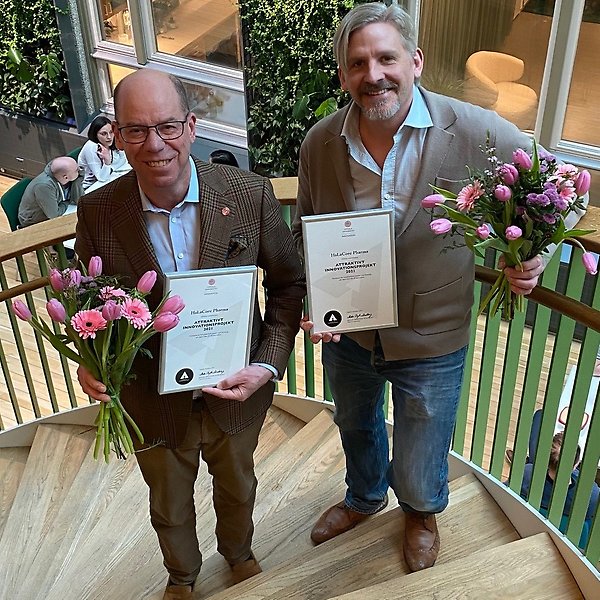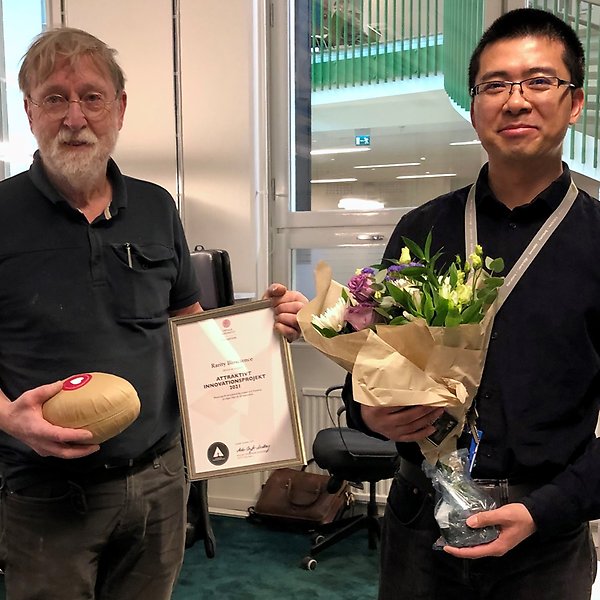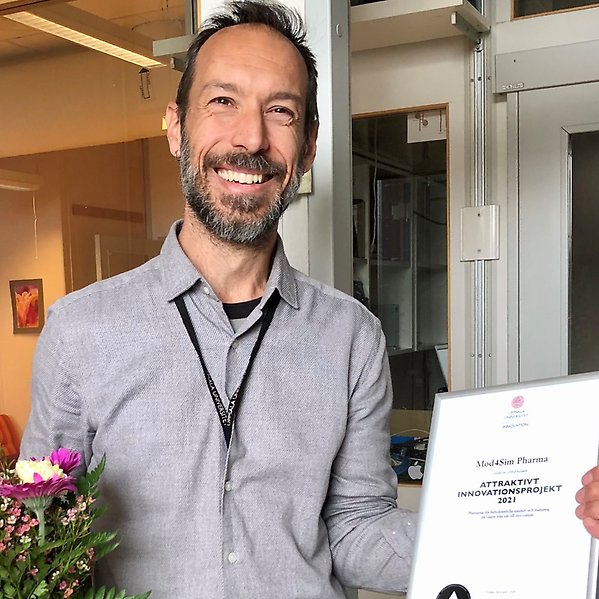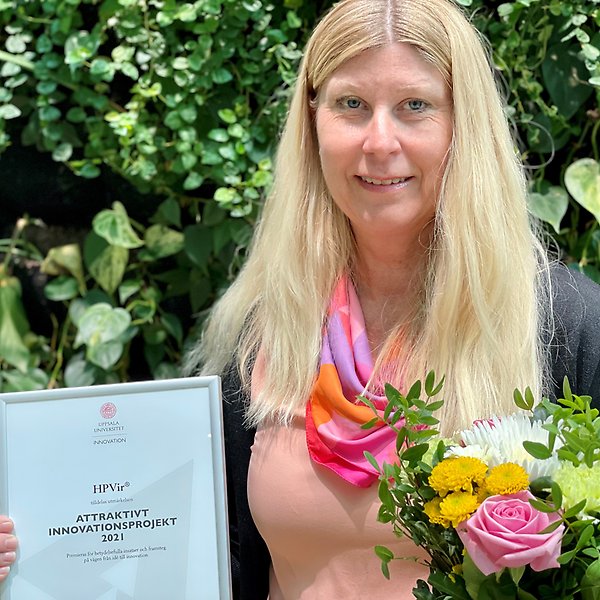2021 Award Winners
All of the Attractive Innovation Projects of 2021 are active in the dynamic field of life sciences, where exciting ideas abound. These projects develop innovative solutions related to prevention, diagnostics, and treatment - with the aim of improving health and well-being.




HaLaCore Pharma
Mats Larhed and Mathias Hallberg have developed a series of new chemical compounds intended for further development into future drugs for the treatment of lung diseases such as fibrosis. The project has been conducted in collaboration between the Department of Medicinal Chemistry and the Department of Pharmaceutical Biosciences, and with the support of the SciLifeLab drug discovery and development platform. The researchers have applied to patent the substances and formed a company called HalaCore Pharma, which has sold the rights to a listed pharmaceutical company that will take over responsibility for development.
Rarity Bioscience
Rarity Bioscience is a precision diagnostics company aiming to commercialise a robust new technique for detecting small amounts of DNA mutations, particularly in blood samples. The technique has a very high sensitivity and could provide healthcare professionals with a whole new way of monitoring cancer patients to detect and prevent recurrence at an early stage. Rarity Bioscience is a spin-off from Professor Landegren’s research group, which is conducting world-leading research in the field of molecular tools. Researcher Lei Chen is the mastermind behind the invention. Uppsala University Invest AB has invested in the company.
MODSIM Pharma
Hugo Gutierrez de Teran and Willem Jespers, Department of Cell and Molecular Biology, have developed new computational chemistry methods with the potential to have a major impact in structure-based drug design. The methods enable the rapid and highly accurate prediction of how and how strongly particular drug molecules bind to key receptors. Using computer calculations to reduce the number of compounds that need to be tested or synthesised in order to identify the most promising drug candidate among millions of potential compounds is of great interest to the pharmaceutical industry. The researchers have received funding in national competition from Vinnova’s VFT+ programme to further develop the methods commercially, which is now being done in the company Mod4Sim Pharma that the researchers founded.
HPVir
The research team has been working for many years to develop HPVir, a combination of a self-sampling kit and an HPV test. The test is designed to detect whether a woman is infected with HPV (human papillomavirus) and thus at greater risk of cervical cancer. Almost all cases of cervical cancer are caused by HPV infection. HPVir testing uses a special sampling card that makes samples stable at room temperature for several years and also allows safe handling of the samples. The effectiveness of HPVir, both in terms of accuracy and propensity to test, has been proven by a large number of scientific studies. Health economic analyses show that the method is cheaper than current screening with gynaecological cell sampling. The project is run by Inger Gustavsson and Ulf Gyllensten, Department of Immunology, Genetics and Pathology and has received funding in national competition from Vinnova’s VFT+ programme.
